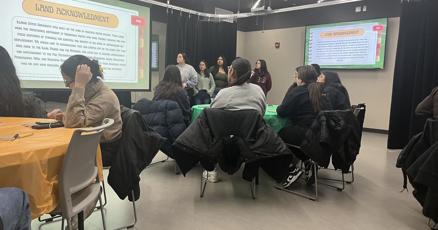Breaking Barriers: How 'Navigating Two Worlds' Transforms Student Safety and Belonging

In a powerful celebration of cultural identity, the Association of Latin American Students (ALAS) created an inspiring evening of dialogue and connection at the Multicultural Center (MCC). The event, titled Navigating Two Worlds: The Latino American Experience, offered a welcoming sanctuary for Latin American students to share their unique stories and challenges of straddling cultural boundaries.
Thursday's gathering provided an intimate and supportive environment where students could explore the complexities of their bicultural experiences, fostering understanding and solidarity among participants. By creating this safe and affirming space, ALAS demonstrated its commitment to empowering Latin American students and celebrating their rich cultural heritage.
